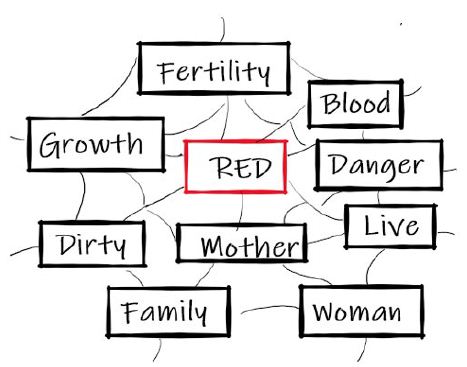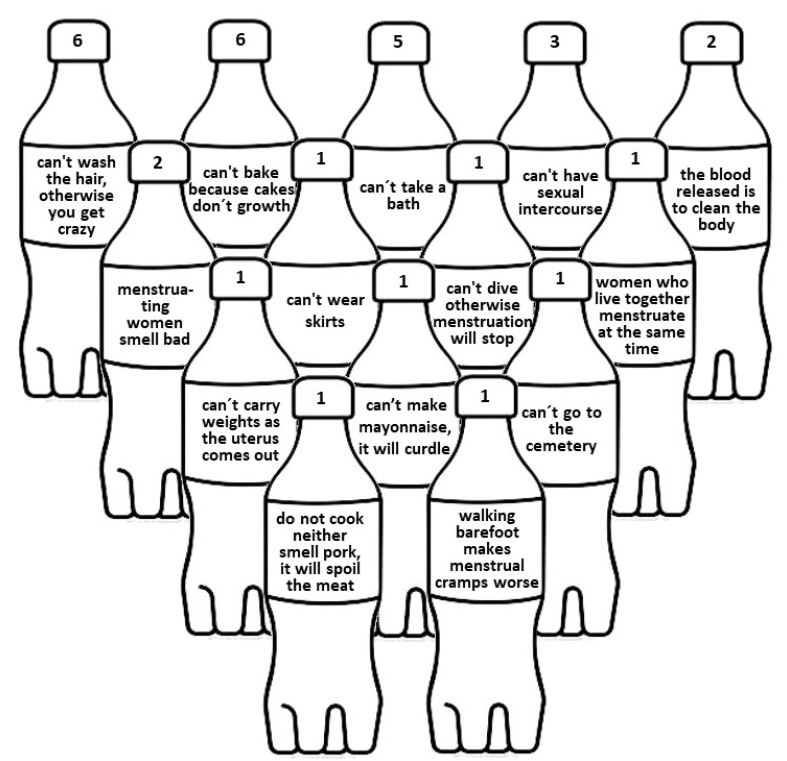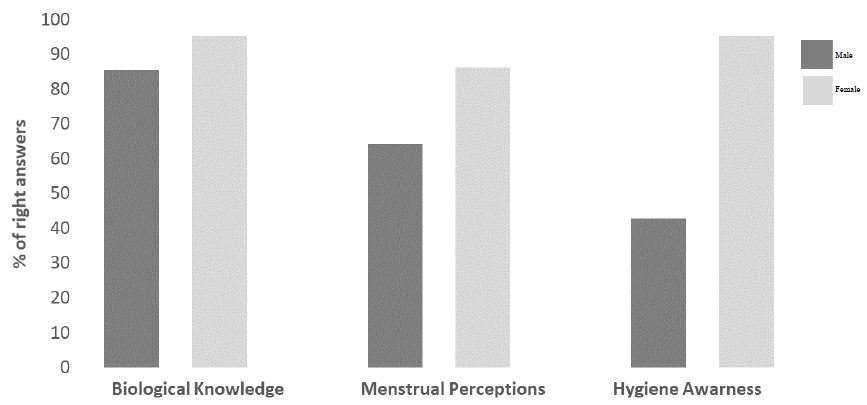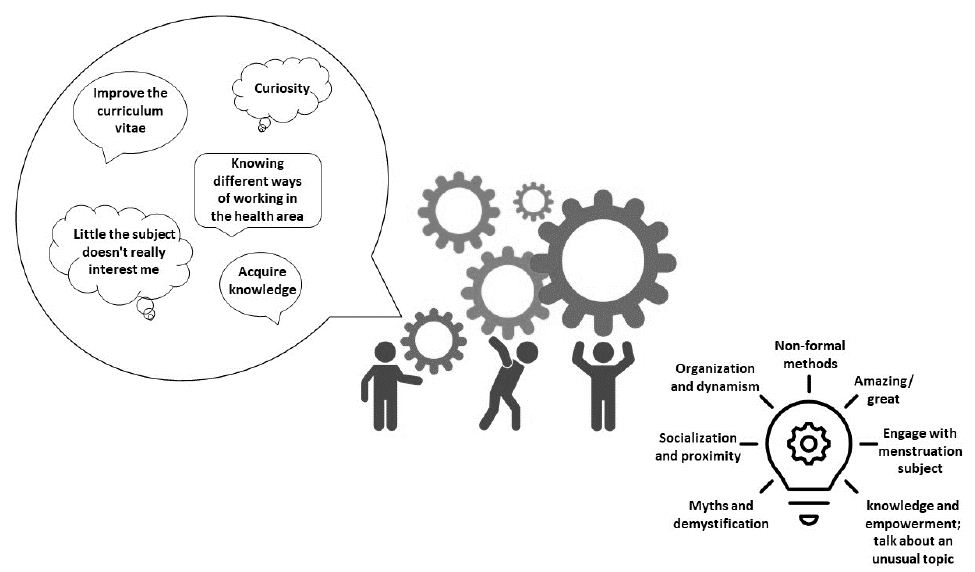Abstract
A paradigm shift in education is currently happen, with a change in the core concepts and practices. There is no doubt that this global challenge of implementing multichannel education boosted the opportunity to acquire digital skills. The excessive use of technology showed a double-edged sword effect, it allowed us to continue working and communicating, especially since the pandemic’s onset, but on the other hand, social skills were weakened by digital isolation. No one knows who is not hidden behind a screen nor can access the body language, which is a valuable tool in the teaching-learning process.
Meanwhile, now that we are expectant and eager to return to normalcy, the growing lack of motivation and poor social interactions come across in the academic community. This evidence highlights how urgent it is to promote strategies to engage, support, and strengthen peer relationships.
The perception of this established emptiness in interpersonal relationships, lead on the great challenge that was to get across the menstruation topic, that cuts across all generations and ages, and is still a subject where there are many alternative conceptions, about which there is little opening to talk about. One academic forum was implemented to speak openly about taboos and overcome constraints, strategies such as games, critical questions, and challenges were presented to be solved with cooperative work, allowing connections between peers and developing their sense of belonging to the same community. Thirty-six health care university students strongly participated by sharing their time, talent, and expertise, making this forum an extremely enriching learning experience for all stakeholders. The results revealed that non-formal approach, not only increases literacy, but also breaks barriers and opens new possibilities for students to actively engage with peers.
Keywords
Menstruation forum, Collaborative learning, Non-formal activities, Peer commitment, Health literacy
Introduction
In a context of social isolation, not only as a consequence of the pandemic, but also due the increasingly growing dependency on technologies and social media, the dissemination of strategies that promote global health literacy should be a priority social responsibility of all educational institutions.
Based on the fact that the young European people are falling in trust, demonstrating a decline in community commitment, the insightful outcomes of non-formal educational methodologies have proven to be an increasingly useful tool for lifelong learning, collaborative work, team building, and project development.
In the European arena of academic education, a structured and conscious change in teaching and learning processes is on process [1,2]. More innovative and dynamic learning environments, linking education to robust formal and non-formal methodologies, are being applied in various contexts. However, for multifactorial reasons the student-centred learning, outlined by the Bologna process, remains under-developed and the promotion of active and meaningful learning is far away from reaching its full potential.
When some particular situation is able to disturb the whole world like what is still happening due to COVID-19 pandemic, world consciousness changes in all areas of society. Despite all negative impacts and changes to daily life, online teaching-learning processes during the lockdown period, undoubtedly accelerated digital skills acquisition and the development of online learning platforms’ potential. Not intending to set obstacles neither to minimize educational digital innovation, some major drawbacks in the on-line process were perceived, namely: it is not suitable for hands-on practical experience; self-motivation, essential time management, and informatics previous skills are needed; as well as the negative impact in the relationship between knowledge and social attitudes. It is unquestionably that face-to-face feedback is more personalized and that a cautious professor can more easily understand non-verbal signals indicating constraints or difficulties in the learning process. Finally, the social isolation undermined the sense of belonging that is crucial for a meaningful learning experience.
In agreement with the fact that the collaborative learning process is a widely recognised pedagogical practice that promotes socialization helping learners to capitalize on one another’s specific skills and gain relevant insights [3,4], this was the chosen strategy to implement our contents. There are several educational approaches that can be applied in order to build knowledge with collaboration, strengthening the social bounds, and mutual engagement in academic contexts [3,5,6]. All of them share the teamwork and can be a strong approach to be implemented in this period of returning to traditional classes, since they reinforce positive interdependence, individual and group accountability, interpersonal and social skills, and also the relevant feelings of belonging.
The positive effects of youth learning engagement are not restricted to changes in the academic environment and community. These young people will continue their journey outside the university campus passing on information, performing positive social changes and pinpointing gaps in society education. Considering that health literacy is often low, even among health care students, and that the menstruation topic is still a subject mainly analysed as a physiological event, not being naturally approached in all its scopes, we believe that a change of the mind-set about menstruation can have a significant impact on youth education/proactivity [7-11].
Being aware that it is necessary to build trust to overcome resistance to change, we share one experience in implementing a collaborative learning experience using the community forum model as a non-formal approach. The forum was designed to deepen menstruation issues, break down taboos and look into menstruation over the dominant preconcert and simultaneously strength and rescue the peer commitment between students.
Spreading reliable knowledge on a non-formal way with students from university health degrees, granted us confidence that health literacy will be improved in the context where people act. Nonetheless, more than contributing to promote health literacy, this paper intends to describe a forum that can be replicated as a methodology and strength the spirit of community.
Methodology
The organization of an academic forum involves a lot of previous work in contextualised planning, challenging, and sequential activities. The participants in this activity were 36 health courses students (future nurses, nutritionists, and physiotherapists), including 14 male and 22 female. These data were used to understand menstruation literacy in these two groups.
After gathering the expectations of the students, an ice breaker activity was used to start working on an unfamiliar environment and get all involved with the issue. In this specific forum the activity chosen was a network game, where alternative conceptions on the subject had emerged. The main steps to apply the network game were: (1) main words related with menstruation were written and placed inside envelopes; (2) participants were divided into groups. In each group, the spokesperson picked one envelope, read the word and everyone had to think about concepts associated with that main word; (3) the wool ball was launched from an element to another until all elements have contributed with a related idea; (4) the person holding the ball of wool began and so the construction of the web of words.
Three initial questions were distributed among students: one regarding biological knowledge, one about menstrual perception practices and another one regarding concern hygiene awareness. The anonymous answers were posted it on the wall.
The concepts inherent to menstruation were initially developed by the students that shared prior knowledge, describing, labelling and explaining some images that were presented. After a brain storming, the concepts consolidation guaranteed that all doubts were clarified.
As a team strengthening and engaging activity, the bowling bottle game was performed to deconstruct pre-existent myths. The bowling game was developed in three distinct steps: (1) each participant wrote a story of customs, a myth or taboo about menstruation and sticked it around one bottle, facing inwards; (2) the bottles were arranged as a bowling game and, one at a time, participants throwed a ball and overturn bottles; (3) the overturned sentence(s) were read and a scientific explanation, when it exists, was shared to clarify or deconstruct the social custom.
The acquisition and/or consolidation of knowledge was evaluated in a more classic way using a quiz, containing six questions regarding biological knowledge, four questions about menstrual perception practices and four questions concern hygiene awareness. The questions were adapted from the [8], and some of them were reformulated to accept closed answers as intended in a questionnaire applied on the kahoot platform.
The main findings of all forums were obtained by using a hand evaluation approach. Participants drew their hand on a piece of paper and recorded it in the drawing according to the scheme: thumb finger – to “point-out” something good, something they really enjoyed; index finger – to “highlight” something they would like to emphasize; middle finger – to “improve” something they did not like so much; ring finger – to “engage” with something they treasured from the activity/event; and in the little finger – to “others” little things they want to add.
Furthermore, the time for coffee break and socialization was very important since a non-formal environment was required. Although the methodology only strengthened the most relevant non formal tools, it was not on propose to minimize all the essential procedures for the implementation of the event. The Figure 1 details the timeline for all activities that were applied in this forum.

Figure 1: Timeline diagram representing all moments of the academic forum
Results
The academic forum was applied to 36 undergraduate students from Atlântica Health School, Portugal. More than an innovative environment, the forum provided a more intimate learning experience. The students strongly participated and there was a generalized commitment with all the proposed activities in a relaxed environment, sharing and questioning emerging spontaneously in an explicit student’s complicity.
Getting into the forum results, the 36 students’ initial expectations were generally low, 35% of the students were more interested in curriculum enrichment, or even with little interest on the topic and 65% expressed the look for knowledge and curiosity about the strategy.
The rescue and students’ engagement started with the use of their assets in a non-formal ice breaker activity. The outstanding word cloud resulting from the network game (Figure 2), firmly helped participants to share their personal stories and built meaningful relationships through the topic.

Figure 2: One example of a web of words obtained on the network game
Expanding the issue with collaborative work always boosts the team energy and motivation, and improve participants ability to problem solving. So, a vigorous collaboration among peers and professors was applied, to overcome the misconceptions surrounding the menstruation issue. The entire team worked in the bottle bowling game and, more than highlight that the empirical evidence about menstruation awareness still remain in Portuguese society, results revealed that their clarification go further when we work together.
The myth more citrated were associated with menstrual perception practices and hygiene awareness, for example: “walking barefoot make the menstrual cramps worse”; “can´t take a bath”, “during menstruation can´t was the hair, otherwise you get crazy” and “can´t bake because cakes don´t grow”. Other myths that may have some connection with the cultural legacy were: “can´t go to the cemetery” and “do not cook neither smell pork, it will spoil the meat”. Since some ideas came up several times, the number of repetitions was registered on the bottle cap as showed in Figure 3.

Figure 3: Diagram of the bowling game represented the bottles with the sentences and the number of repetitions
Back to the wall, the anonymous answers to the three starting questions showed incoherent, disorganized answers, only revealing empirical knowledge with a lack of scientific support, and not suitable at all for students in the health area.
After experiencing this team learning approach, the global results of the Kahoot questionnaire revealed higher percentage of right answers in biological knowledge questions (91%), followed by menstrual perceptions (69%) and hygiene awareness (64%). Comparisons between males and females showed an overall female tendency for higher scores (Figure 4).

Figure 4: Questionnaire percentage results organised by group of questions and sex
These results are in agreement with the final balance made for students who shared orally their difficulties in solving the questionnaire. Boys highlighted that their knowledge of the subject had improved considerably, that they never felt so comfortable talking about the topic and it was an excellent experience to be able to share the information with more experienced colleagues.
Despite this positive output, the forum success was only validated by comparison between the initial expectations of the students and the assessment about the forum that they performed at the end of the entire event (hand evaluation). This linked comparative analysis is represented in Figure 5.

Figure 5: Expectations and evaluation of the academic forum process
The hand evaluation exercise showed that students really pointed out, highlighted and engaged with the non-formal methodologies. In the “point out finger”, knowledge and empowerment in general, and specifically environmentally friendly new hygiene products, obtained 55%. Non-formal activities, socialization and proximity obtained the remaining 45% of answers. The 39% of the “highlight finger” opinions revealed openness to talk and the contact with all menstrual hygiene products whilst 36% indicated non-formal and dynamism, and the last 25% myths and demystification. Nothing to declare got the majority of the statements from the “improve finger” (61%) and some students suggested that the subject deserves more time. The “engage finger” shared 50% with the non-formal approach, and 50% with the menstrual subject and ecological products. The “little finger” revealed opinions and adjectives that support carrying out more similar initiatives.
Figure 5 indicates the transformation of the initial expectations into the main findings obtained at the end of the event. The dynamic process represents the forum and reveals a significant change between the initial and final ideas and/or concepts of the students. The gaps and the initial curiosities resulted in very positive evaluations and one of the findings was the verbalization of a lasting commitment to the theme and method.
Conclusions
Despite clearly living in a time of great technological challenges, the exclusive application of education technology is not a magic solution for everything or for everyone.
The implemented actions aim to create tools that can be applied and used in different contexts, to reverse significant learning losses but also to implement new strategies to recover social emotional learning. Empower people, regardless of social and cultural background, fostering agents of well-being, in their local environment to promote positive social changes; it is a huge promotion of health literacy.
According to other studies that highlighted better learning achievements in university institutions through collaborative non-formal education, this focus on the student helps them to maintain a constant motivation and affection towards their study [12-14]. The analysed forum proved to be a strong tool for brainstorming matters important to public health that are outside the syllabus. Based on collaborative learning, students were cognitively, socially, and emotionally challenged to critical thinking. By talking freely about one of the oldest non issues, the menstruation, they acquired relevant insights and tacit knowledge, and strengthened all interpersonal relationships, allowing the build of constructive relationships, improving communication and trust.
The implementation of non-formal methods is not by itself a guarantee of success. The chosen activities and the timing of their application were key to promote the participation and engagement of the students, one of the most important criteria for successful dynamics. Doubtless, brainstorming around the several inaccurate biased ideas was the moment when the contribution, building of awareness, learning, and transference of knowledge fulfilled most participants, confirming that we become stronger when working together sharing ideas and knowledge. By getting into reflection teamwork maximized the available potential to achieve the needed results and, therefore, contributed more effectively towards a successful outcome.
Nonetheless, despite all the efforts expended previously, the reward finally came when all the evaluation processes applied, such as observation of body language, formal responses to questionnaires, and evaluation of the entire forum were very positive and encouraging. Feedback opinions such as “great and amazing engagement with non-formal methodologies” showed that it was possible to overcome all participants’ expectations and allowed the validation of the total event.
The forum validation was fundamental to add value on the research consolidation and to support a continuous improvement. To rescue students’ commitment, all academic community need training and additional support on a set of tools, not only to assess the learning levels of their students, but also to rescue their social emotional learning skills.
Community should be prepared to change their mind-set, taking the challenge of non-formal methods and embrace engaging activities. All in all, the initial low expectations of the menstruation forum were transformed in very positive outputs.
Empower people with knowledge to recognize the influence of their emotions on their attitudes, grant that they bring home a message about emotional literacy. As a consequence, not only a better self-awareness is expected, but also the improvement of the relationship and structure of the community, where our youth and young adults belong.
References
- EHEA – European Higher Education Area (2015) Widening participation for equity and growth: A strategy for the development of the social dimension and lifelong learning in the European Higher Education Area to 2020.
- EHEA – European Higher Education Area (2020) Bologna Process Implementation Report.
- Le JJ, Wubbels T (2018) Collaborative learning practices: teacher and student perceived obstacles to effective student collaboration. Cambridge Journal of Education 48: 103-122.
- Kromydas T (2017) Rethinking higher education and its relationship with social inequalities: past knowledge, present state and future potential. Palgrave Commun 3.
- Millis BJ (2010) Why faculty should adopt cooperative learning approaches. In: Millis BJV, Sterling V (eds.) Cooperative learning in higher education-across the disciplines, across the academy (pp. 1-11). Stylus Publishing.
- Scager K, J Boonstra, T Peeters, J Vulperhorst, F Wiegant (2017) Collaborative Learning in Higher Education: Evoking Positive Interdependence. CBE-Life Sciences Education 15: 1-9.
- Eschler J, A Menking, S Fox, U Backonja (2019) Defining Menstrual Literacy With the Aim of Evaluating Mobile Menstrual Tracking Applications. CIN: Computers, Informatics, Nursing 37: 638-646.
- Pires AM, AC Sousa (2020) Girls experience of menstruation: One Portuguese reality. Case Report Review Open Access 1: 118.
- PEN-Period Empowerment Network Project (2020) Period Empowerment Handbook: Re-educating society about menstruation through youth work. Terram Pacis Editorial TPOER-012-PEH/25-MAY-20.
- Sousa AC, AM Pires (2020) Opinion: Menstruation One of the Oldest Non-Issues. Womens Health Science Journal 4: 000148.
- Armour M, K Parry, C Curry, T Ferfolja, M Parker, et al (2021) Using an online intervention to improve menstrual health literacy and self-management in young women: a pilot study.
- Grajcevci A, Shala A (2016) Formal and Non-Formal Education in the New Era. Action Researcher in Education 7: 119-130.
- Rocca C, La M, Margottini, R Capobianco (2014) Collaborative Learning in Higher Education. Open Journal of Social Sciences 2: 61-66.
- Walsh L, Kahn P (2009) Collaborative Working in Higher Education. The Social Academy.